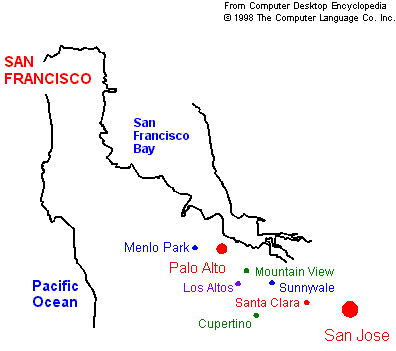Warm up
Questions
- What is venture capital?
- Why do US venture capital firms decide to expand their business to Europe?
- What are some of the obstacles blocking their development in Europe?
- What sectors appeal to US venture capital firms?
Background
- International monetary system
- Global financial imbalances
- International capital flows
- International financial centers
- Ageing and pensions
- Asian Sovereign Wealth Funds in Europe: Much Ado about Nothing?, forthcoming in Thrust and Parry in the Global Game: Giants and the World Economy, Tokyo Club Foundation for Global Studies
- Global liquidity, markets and politics, in The Euromoney International Debt Capital Markets Handbook, Euromoney, London, 2007
- “Capital flows, imbalances and governance: the challenges of shaping a new economic order”, forthcoming in Agora Projects, ed., G8 Summit 2007, Newsdesk Media, London, June 2007.
- Capital Flows and Emerging Markets Economies: A Larger Playing Field?, IEP Briefing Paper 07/03, Chatham House, London, September 2007
- Shaping a new global economic order, in Fraser, Maurice, ed, G8 Summit 2008: Growth and Responsibility, Agora Projects and Newsdesk Communications Ltd., London, 2007
- Market Imperfections, Ageing and the Role of Long-Dated Bonds, The Business Economist, 38, 1 (2007), with V Rossi
- “China and India in the Changing Global Economic Order”, Tokyo Club Foundation for Global Studies, January 2007.
- “Thinking longer, working harder: how long-dated bonds can help Europe’s ageing population”, IEP Briefing Paper 06/01 (2006), International Economics Program Chatham House, London.
- “Reforming economic governance in Europe: exploring the road to effective coordination”, International Affairs, 81, 4 (2005), 741–755.
About the author
 Dr Paola Subacchi
Dr Paola Subacchi
Paola Subacchi’s research covers a wide range of economic and policy issues, focusing, in particular, on the emergence of new economic powers and the changing dynamics of the global economic order. Her current work explores the link between economic policy and foreign policy, and how the emergence of new players such as China poses key economic challenges — i.e. energy security, currency regime — that are also key foreign policy issues. She has recently written about governance, especially in the context of the European Union, as well as on ageing, trade, and migration.
Paola Subacchi is currently Head of the International Economics Program at Chatham House (Royal Institute of International Affairs). She is a contributor to leading journals and a regular media commentator. Recent coverage includes the BBC, CNN, Bloomberg, CNBC, Newsweek, the Financial Times, the Wall Street Journal and the Herald Tribune. An Italian national, she studied at Bocconi University in Milan and at the University of Oxford.
Expertise
Recent publications include:
About Chatham House查塔姆研究所
Chatham House has been the home of the Royal Institute of International Affairs for over eight decades. The mission is to be a world-leading source of independent analysis, informed debate and influential ideas on how to build a prosperous and secure world for all.
Silicon Valley
Region on the San Francisco Peninsula in California where the miniaturized electronics industry is centered, so called because most of the devices built there are made of semiconductors such as silicon.
The term is often used as a catchword to describe the development of high-tech industry: “If we can attract this corporation to our town, we could become another Silicon Valley.”
An area south of San Francisco, California that is noted for its huge number of computer companies. Initially, Silicon Valley was confined to the Santa Clara valley and started north of Palo Alto stretching 25 miles south to San Jose. With expansion into neighboring towns, the entire San Francisco Bay area can be considered Silicon Valley.
Thousands of hardware, software and related firms have headquarters or offices in Silicon Valley, making it the largest confluence of high tech in the U.S. Throughout the 1970s and 1980s, the number of computers and electronics firms grew exponentially, which is when the area got its nickname. In the 1990s, software and Internet-related companies proliferated. A downside to all this has been high prices for houses and apartments. Real estate goes for two to 10 times prices elsewhere in the country, especially if there is any sizeable land, which is only for the very wealthy.

Silicon Valley
The term Silicon Valley was coined by Ralph Vaerst, a Northern California entrepreneur. His journalist friend, Don Hoefler, first published the term in 1971. He used it as the title of a series of articles "Silicon Valley USA" in a weekly trade newspaper Electronic News which started with the January 11, 1971 issue. Valley refers to the Santa Clara Valley, located at the southern end of San Francisco Bay, while Silicon refers to the high concentration of semiconductor and computer-related industries in the area. These and similar technology and electricity firms slowly replaced the orchards which gave the area its initial nickname, the Valley of Heart's Delight.
venture capital 风险资本
Financing for new businesses. In other words, money provided by investors to startup firms and small businesses with perceived, long-term growth potential. This is a very important source of funding for startups that do not have access to capital markets. It typically entails high risk for the investors, but it has the potential for above-average returns.
Venture capital can also include managerial and technical expertise. Most venture capital comes from a group of wealthy investors, investment banks and other financial institutions that pool such investments or partnerships. This form of raising capital is popular among new companies, or ventures, with limited operating history, who cannot raise funds through a debt issue. The downside for entrepreneurs is that venture capitalists usually get a say in company decisions, in addition to a portion of the equity.
private equity 私募股权
Equity capital that is made available to companies or investors, but not quoted on a stock market. The funds raised through private equity can be used to develop new products and technologies, to expand working capital, to make acquisitions, or to strengthen a company's balance sheet.
The average individual investor will not have access to private equity because it requires a very large investment.
private equity fund 私募股权基金
A fund that invests in companies and/or entire business units with the intention of obtaining a controlling interest (usually by becoming a majority shareholder, sometimes by becoming the largest plurality shareholder) so as to be in the position of restructuring the target company's reserve capital, management, and organizational infrastructure. Once one or more of these objectives are accomplished, the target companies are delisted from public exchanges (unless already unlisted), held private, and restructured over a period of 3–7 years, and then, again, relisted through an IPO.
Major investors in this industry include Goldman Sachs Private Equity Group, KKR (Kohlberg Kravis Roberts & Co.), Apollo Management, Bain Capital, Blackstone Group, Hellman & Friedman, Carlyle, and Texas Pacific Group.

